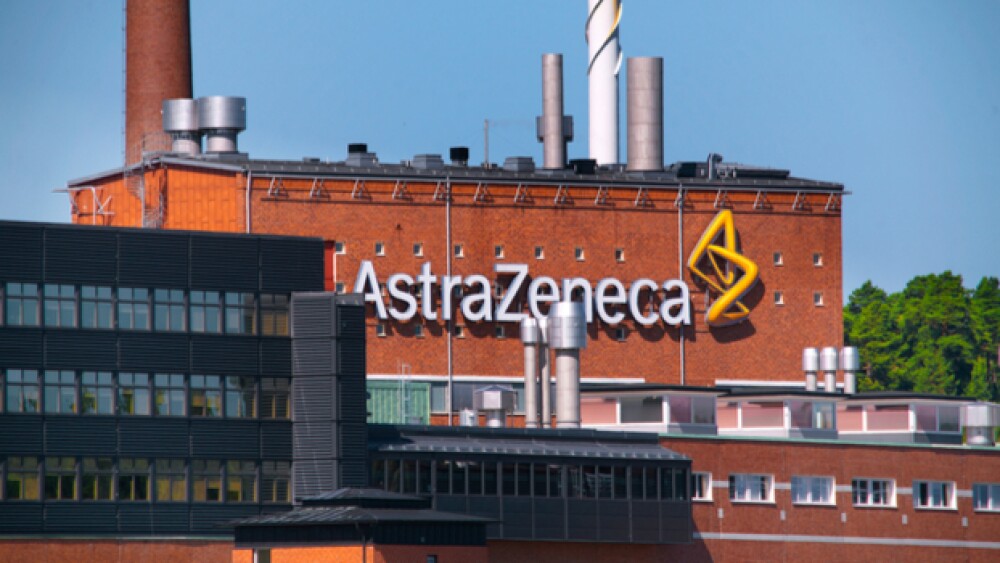The triple combination therapy does not use a chemotherapy agent in its experimental treatment for an aggressive blood cancer.
Roland Magnusson / Shutterstock.com
AstraZeneca and California-based Forty Seven initiated a new triple combination therapy clinical trial has the potential to create additional opportunities to further optimize treatment for patients with diffuse large B-cell lymphoma, an aggressive form of non-Hodgkin lymphoma (NHL).
The trial will include Forty Seven’s CD47 antibody, 5F9, which will be combined with AstraZeneca’s Calquence (acalabrutinib) and Rituximab. The trial does not include any chemotherapy agents. It is believed that this combination will provide a treatment option that is more easily administered. This study aims to build upon the promising results already reported from a Phase Ib study of 5F9 in combination with rituximab in NHL patients by including a third agent, acalabrutinib, to further optimize the treatment of DLBCL patients, Forty Seven said in its announcement this morning. In that Phase Ib trial, 5F9 in combination with rituximab showed initial activity in patients with relapsed or refractory DLBCL and follicular lymphoma. Forty Seven expects to report updated data from the Phase II study in the second quarter of 2019.
Andrew Mortlock, chief scientific officer at Acerta Pharma, which is AstraZeneca’s hematology research and development center of excellence, said there is excitement around the combination of these agents.
“With acalabrutinib, we have a compound that optimally targets Bruton tyrosine kinase (BTK). We established the PRISM platform study in 2018 with the explicit goal of exploring novel combinations and are pleased to be able to collaborate with Forty Seven to include 5F9 in this platform and bring this innovative combination of therapies to patients,” Mortlock said in a statement.
CD47 is a novel macrophage checkpoint molecule overexpressed on cancer cells that sends inhibitory signals to macrophages. Forty Seven’s 5F9 binds to CD47, therefore taking the “brakes off” macrophages, enabling them to destroy cancer cells, the company said.
Forty Seven’s Craig Gibbs said the relationship with Acerta will expand the breadth of the company’s 5F9 development program that could offer patients a treatment option that is more easily administered than current regimens.
“BTK inhibition has already demonstrated therapeutic potential in patients with B-cell lymphomas and we believe that harnessing this approach while also activating the macrophage component of the innate immune system could enable more benefit than either strategy alone. With today’s announcement, we are now pursuing three combination approaches reflecting our deep commitment to meeting the needs of patients with DLBCL,” said Gibbs, the company’s chief business officer.
For Forty Seven, the collaboration with AstraZeneca follows another triple combination clinical trial recently initiated by Genentech and Forty Seven that will also expand upon the original 5F9 + rituximab combination.





